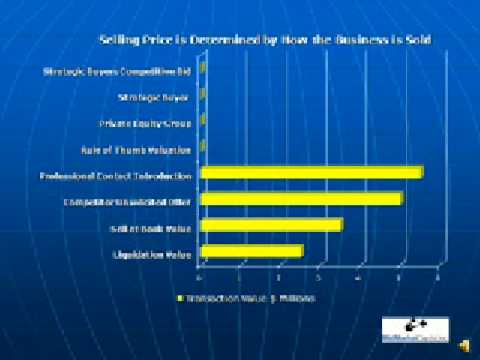
The Benefits of Retaining Key Staff
 A business can be only as good as the people it employs. When taking care of your business, it takes a lot of effort and time to establish it on firm ground and along the way you build up a number of assets. These assets can be tangible, like computers, furniture or stocks. But, it’s the intangible assets that are usually the most important. These intangible assets are your goodwill and your human resource. When you decide to exit your business and are planning to sell it, it is vital that you retain key staff right until the key moment.
A business can be only as good as the people it employs. When taking care of your business, it takes a lot of effort and time to establish it on firm ground and along the way you build up a number of assets. These assets can be tangible, like computers, furniture or stocks. But, it’s the intangible assets that are usually the most important. These intangible assets are your goodwill and your human resource. When you decide to exit your business and are planning to sell it, it is vital that you retain key staff right until the key moment.
The Importance of Key Staff
Unlike fixed and tangible assets that you can buy and sell on the market anytime, key staff is usually an irreplaceable asset. This is because you have invested a great deal of time and money in recruiting, hiring, training, and grooming the key staff in your organisation. Your business, like all other businesses, has a particular culture and environment. Your employees have developed into being productive assets of your business over a long period of time. The performance and productivity of your business depends upon your key staff. Therefore, it is vital that you retain key staff for as long as you want your business to keep performing at an optimum level.
Who Are Your Key Staff Members?
Before you decide to retain key staff prior to selling your business, you’ll need to determine who the key staff members actually are. Usually, the people occupying the top slots in sales, marketing, operations and finance are the employees that you should retain right until after your business has been sold. You may also have a couple of key people in other areas depending on the type of business. For example product designers, engineers or software programmers. There would be one or two people in sales and marketing who know everything about the product, the customers, and the selling process. Similarly, the people in finance know about your current financial standing, your liabilities, accounting methods, business revenue and cost models, and assets.
Reasons to Retain Key Staff
There are at least three reasons to retain key staff during a business sale:
- Your business performance depends upon your key staffers. With key staff gone, your sales and profits may dwindle. Your business can even come to a complete halt. Such a situation would seriously jeopardise your business sale. In order to sell your business for profit, it is elementary that you maintain your level of sales and profits. Ideally speaking, your business should be doing “business as usual”. Any impression that your business is slowing down or losing money will make the sale difficult and bring down the expected sale price. Therefore, it is extremely important to retain key staff.
- Retaining key staff is not only important for you, it may also be important for the people who will be buying your business. It could aid smooth transition of ownership and unaffected business performance during and after the sale.
- Your employees have also invested their blood, sweat and tears in your business. Your key staff members are those people who, apart from being competent, are also motivated and loyal to your business. This loyalty should be rewarded.
To Tell or Not to Tell
Another important decision that you need to make while selling your business is whether or not you should inform your key staff members about your plans to sell the business. You may consider it morally wrong to keep your team in the dark and surprise them when the sale goes through. On the other hand, knowing that the business is going to be sold can make your employees lose interest and motivation. Naturally, they will be looking for another job and might even desert you before you’d like them to. There is no fixed answer, as every situation is different. The best course of action is to make arrangements where your key staff continues to perform the business functions right through to sale completion.
Your sale plan should give due consideration to your key staff. You could make provisions, subject to the buyer agreeing, in the Sale Purchase Agreement (SPA) to retain key staff —the people without whom the business profitability is likely to be affected. You can also motivate your key staff by offering a financial incentive from a successful business sale completion (even if you couch it in different terms if they are not to be privy to the sale process).
In all cases, be mindful that parting with your key staff at a critical time can cause unwanted problems and complications during the sale process. It is important to retain key staff if you want the sale to proceed smoothly and earn a good return on your investment.
Kim Brown, Co-Founder of Business Wand, helps business owners navigate their way through the start to finish process of selling a business. Her specialty is to help owners cut costs and increase profits prior to sale. To understand how you can sell your business quickly for the highest sales price, purchase the book, “How To Sell A Business: The #1 guide to maximising your company value and achieving a quick business sale”







 Negotiation Techniques to Use When Selling Your Business
Negotiation Techniques to Use When Selling Your Business

